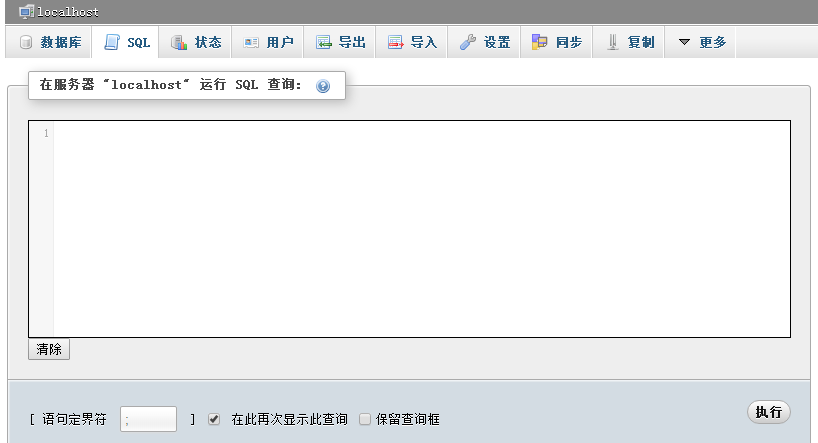PHP MySQL creates database
The database has one or more tables.
You need CREATE permission to create or delete a MySQL database.
Creating a MySQL database using MySQLi and PDO
The CREATE DATABASE statement is used to create a database in MySQL.
In the following example, a database named "myDb" is created:
Instance (MySQLi - Object-oriented)
<?php
$servername = "localhost";
$username = "username";
$password ="password";
// 创建连接
$conn =new mysqli($servername, $username, $password);
// 检测连接
if ($conn->connect_error) {
die("连接失败: " . $conn->connect_error);
}
// 创建数据库
$sql = "CREATE DATABASE myDB";
if ($conn->query($sql) === TRUE) {
echo "数据库创建成功";
} else {
echo "Error creating database: " . $conn->error;
}
$conn->close();
?>Note: When you create a new database, you must specify three parameters (servername, username and password) for the mysqli object.
Tip: If you use another port (default is 3306), add an empty string for the database parameters, such as: new mysqli("localhost", "username ", "password", " ", port)
About database naming:
1. It is not allowed to use Chinese characters as the name of the database (table name, field name Also)
2. Try not to use reserved words (keywords) in the database name
3. Do not use special symbols in the database name, but you can have multiple words separated by underscores
Instance (MySQLi Procedural)
<?php
$servername = "localhost";
$username = "username";
$password ="password";
// 创建连接
$conn = mysqli_connect($servername,$username, $password);
// 检测连接
if (!$conn) {
die("连接失败: " . mysqli_connect_error());
}
// 创建数据库
$sql = "CREATE DATABASE myDB";
if (mysqli_query($conn, $sql)) {
echo "数据库创建成功";
} else {
echo "Error creating database: " . mysqli_error($conn);
}
mysqli_close($conn);
?>Note: The following uses the PDO instance to create the database "myDBPDO":
Example
Using PDO:
<?php
$servername = "localhost" ;
$username = "username";
$password = "password";
try {
$conn = new PDO ("mysql:host=$servername;dbname=myDB", $username, $password);
// 设置 PDO 错误模式为异常
$conn->setAttribute(PDO::ATTR_ERRMODE, PDO::ERRMODE_EXCEPTION);
$sql = "CREATE DATABASE myDBPDO" ;
// 使用 exec() ,因为没有结果返回
$conn->exec($sql);
echo "数据库创建成功<br>" ;
}
catch(PDOException $e)
{
echo $sql . "<br>" . $e-> getMessage();
}
$conn = null;
?>Tips: The biggest benefit of using PDO is that you can use the exception class when problems occur during the database query process to deal with the problem. If an exception occurs in the try{ } code block, the script will stop execution and jump to the first catch(){ } code block to execute the code. In the code block captured above we output the SQL statement and generate the error message.
PDO::setAttribute — Set an attribute. For details, please refer to: PDO::setAttribute
Using phpMyAdmin
can be executed by opening phpMyAdmin and directly entering the code and clicking the "Execute" button in the lower right corner. Operation:

Create database
CREATE DATABASE db_name;
View database
Create After creating the new database, you can view the newly created database through the following code:
SHOW CREATE DATABASE db_name;
Select database
When operating on a database, you need to select a database.
mysql_select_db() Used to select a database. If successful, the function returns true, if failed, returns false.
For detailed usage, please refer to: mysqli_select_db() function.














